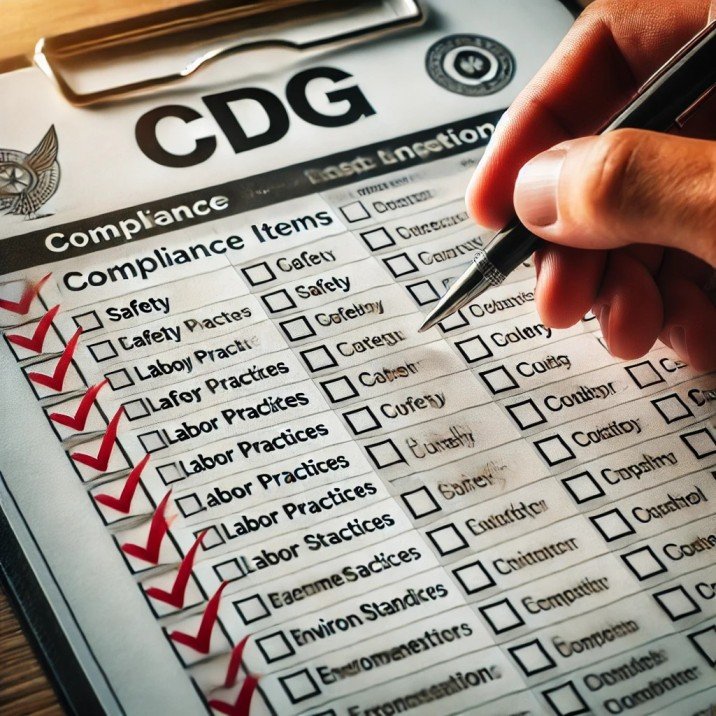What Documentation is Needed for a Social Compliance Audit? A Comprehensive Guide
In today’s global business environment, maintaining high ethical standards across your operations and supply chain is not just a matter of corporate responsibility—it’s essential for long-term success. Social compliance audits are a critical tool in verifying that your business adheres to important social, environmental, and ethical standards. However, the effectiveness of these audits largely depends on the availability and accuracy of your documentation. So, what exactly do you need to prepare?
Introduction: The Importance of Proper Documentation in Social Compliance Audits
Social compliance audits evaluate a company’s adherence to labor laws, environmental regulations, and ethical business practices. These audits require a significant amount of documentation to provide a transparent and accurate view of your company’s practices. Proper documentation not only facilitates a smoother audit process but also demonstrates your commitment to upholding the highest standards in your industry.
In this blog post, we’ll explore the key types of documentation needed for a social compliance audit, offering practical tips on how to prepare and manage these documents effectively.
Key Documentation Needed for a Social Compliance Audit
To ensure a successful social compliance audit, it’s essential to have a well-organized and comprehensive set of documents that cover various aspects of your business operations. Below are the main categories of documentation that auditors typically require:
1. Labor and Employment Records
Labor practices are a core focus of social compliance audits, and detailed employment records are crucial for demonstrating compliance with labor laws and standards. Required documents include:
- Employee Contracts: These should outline terms of employment, including job responsibilities, working hours, wages, and benefits. Ensure that contracts are current and compliant with local labor laws.
- Payroll Records: Payroll documentation should accurately reflect the wages paid to employees, including overtime and any deductions. Auditors will compare payroll records with contracts and time sheets to ensure consistency.
- Time Sheets and Attendance Records: These documents track employees’ working hours and attendance. They are essential for verifying that your company complies with regulations regarding working hours, overtime, and rest periods.
- Training Records: Documentation of any training provided to employees, particularly in areas like health and safety, should be maintained and readily available. This demonstrates your commitment to employee development and workplace safety.
Practical Tip: Regularly review and update employment records to ensure they reflect any changes in labor laws or company policies. Digital record-keeping systems can help streamline the process and ensure easy access during an audit.
2. Health and Safety Documentation
Health and safety are critical components of social compliance. Auditors will need to see that your company provides a safe working environment for its employees. Key documents include:
- Safety Policies and Procedures: These should detail your company’s health and safety protocols, including emergency procedures, equipment maintenance, and hazard communication.
- Incident Reports: Records of any workplace accidents, injuries, or near misses should be maintained and reviewed regularly to identify areas for improvement.
- Safety Training Records: Documentation of safety training sessions, including attendance records and training materials, should be kept to show that employees are well-informed about workplace safety practices.
- Health and Safety Inspections: Reports from internal or external health and safety inspections should be available to demonstrate ongoing compliance with safety standards.
Example: A manufacturing company might be required to present documentation of regular equipment safety checks and employee training sessions on operating machinery safely during a social compliance audit.
3. Environmental Compliance Documents
For companies in industries with significant environmental impact, documentation related to environmental practices is a key focus during social compliance audits. Necessary documents include:
- Environmental Policies: Your company’s policies on environmental management, waste reduction, energy use, and sustainability should be clearly documented.
- Waste Management Records: Documentation related to the disposal of hazardous and non-hazardous waste, including contracts with waste management companies and records of disposal activities, should be maintained.
- Emission Reports: If your company is subject to regulations regarding air or water emissions, ensure that you have up-to-date reports and monitoring data.
- Environmental Audits and Assessments: Reports from previous environmental audits or assessments can provide a comprehensive view of your company’s environmental impact and the steps taken to mitigate it.
Practical Tip: Implement regular internal environmental audits to ensure that your company stays on top of compliance requirements and can address any issues proactively.
4. Ethical Business Practices Documentation
Social compliance audits also assess your company’s commitment to ethical business practices, which includes transparency, anti-corruption measures, and respect for human rights. Key documents include:
- Code of Conduct: Your company’s code of conduct should outline the ethical standards expected of employees and management, covering areas such as anti-corruption, fair trade practices, and respect for human rights.
- Supplier Contracts and Agreements: These documents should include clauses related to social compliance, ensuring that your suppliers adhere to the same ethical standards as your company.
- Whistleblower Policies: Documentation of your company’s whistleblower policy, including procedures for reporting unethical behavior and protections for whistleblowers, is essential for demonstrating a commitment to transparency and accountability.
Example: A company might be required to present documentation showing that all suppliers have signed agreements committing to the company’s code of conduct, which includes prohibitions on child labor and forced labor.
Preparing for a Successful Social Compliance Audit
Proper documentation is the backbone of a successful social compliance audit. By ensuring that your records are comprehensive, well-organized, and up-to-date, your company can not only pass the audit but also demonstrate its commitment to ethical and responsible business practices.



